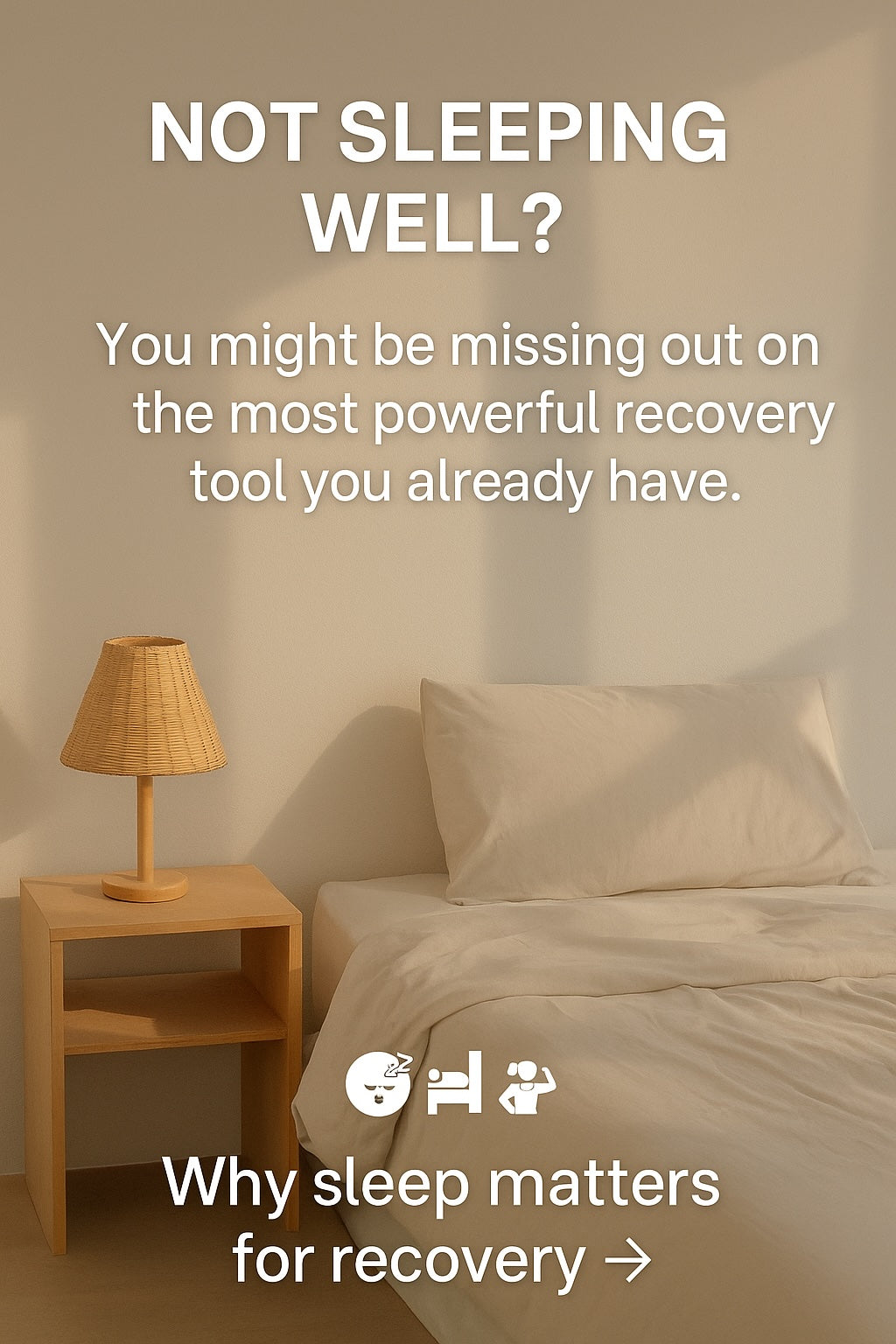
💤 Sleep and Recovery: The Foundation of Healing for Athletes and Adventurers
Why Prioritizing Sleep May Be the Most Powerful Recovery Tool You’re Not Using Enough
In the pursuit of peak performance whether you’re training for your next gravel race, chasing waves, or grinding through a long week at work recovery is everything. And at the heart of recovery lies the one thing we often underestimate: sleep.
According to Dr. Andrew Huberman, neuroscientist at Stanford,
“Sleep is the master switch for recovery, hormone regulation, brain function, and physical repair.”
Meanwhile, Dr. Peter Attia, longevity expert and performance physician, emphasizes that
“Sleep is a non-negotiable pillar for anyone who wants to optimize their healthspan not just their lifespan.”
🧠 What Happens During Sleep?
During deep non-REM and REM sleep, your body:
-
Repairs damaged muscle tissue
-
Flushes out brain toxins via the glymphatic system
-
Rebalances hormones like cortisol, growth hormone, and testosterone
-
Strengthens immune response
-
Consolidates memory and learning especially critical for skill-based athletes
Without quality sleep, your body struggles to adapt to stress whether physical, emotional, or environmental.
📉 The Cost of Skimping on Sleep
Even one night of poor sleep can:
-
Increase pain sensitivity and inflammation
-
Reduce insulin sensitivity
-
Impair coordination and reaction time
-
Elevate cortisol levels
-
Lower mood and motivation
Athletes who consistently get fewer than 6 hours of sleep experience higher injury rates and lower performance.
Sleep isn’t downtime it’s active repair.
⌚ Tech-Enhanced Sleep: Using Fitness Trackers to Guide Recovery
One of the best ways to improve your sleep is by understanding it.
Fitness trackers help you visualize what’s really happening when your eyes are closed.
Popular Sleep Trackers:
-
Oura Ring
Tracks sleep stages, readiness, and HRV (heart rate variability). Great for overall recovery insight. -
Whoop Band
Measures strain and recovery. Offers daily sleep coaching and performance feedback. -
Garmin Watches
Monitors sleep, stress, and "body battery" levels, ideal for endurance athletes and weekend warriors.
These tools allow you to take control of your rest by turning invisible recovery into real-time data.
🌙 Sleep Tips from Huberman & Attia
Want to recover better and perform stronger? Start here:
-
Morning sunlight: Get outside within 30 minutes of waking
-
Caffeine cutoff: Avoid it after 2:00 p.m.
-
Keep it cool: Ideal sleep temp is 65–68°F
-
Ditch blue light: Use screen filters or glasses after sunset
-
Stick to a schedule: Go to bed and wake up at the same time daily
-
Track it: Monitor HRV, deep sleep %, and trends not just total time in bed
🛌 Final Thoughts: Recovery Is Where the Growth Happens
There’s no progress without recovery, and there’s no recovery without sleep.
You can train harder, lift heavier, and push farther but if you’re not sleeping, your body can’t truly rebuild.
Prioritize rest. Track your sleep. Let your body do what it was designed to do.
You take sleep, and all is coming.